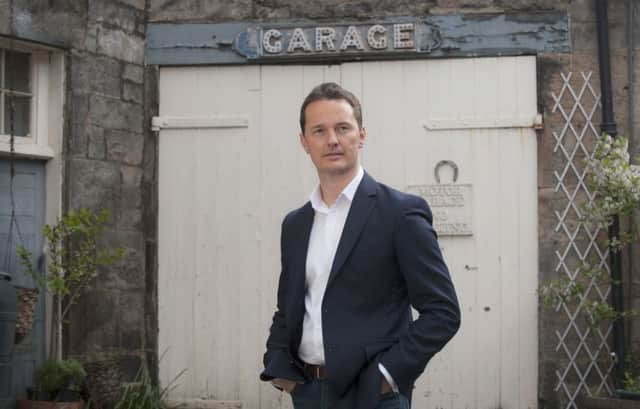Starting a business - top tips from Scottish entrepreneurs


Here, those who have already walked the path from initial idea to successful enterprise offer some practical advice.
SELF-SUFFICIENCY
Mike Welch, founder and CEO of online tyre retailer Blackcirlces.com, started working in a garage in his hometown of Liverpool aged 16 and was head-hunted to join Kwik-Fit as head of e-commerce just four years later. He started Blackcircles in 2001 and was awarded an OBE last year. “I have an issue with the number of businesses focused on endless fund raising and exits, using acronyms as their call signs for success and missing the good old fashioned focus on cash, break even and profit,” he said.
Advertisement
Hide AdAdvertisement
Hide Ad“To founders here’s my advice, for what it is worth: carefully navigate the quagmire of funding and advisors, particularly the latter.
“I see so many self proclaimed experts of the internet and startup world who have never experienced either - beware the snake oil salesmen and women. Value your time, focus and equity. Focus on running a real business and not on raising money to keep your business running. Trust your gut.”
TAKE YOUR TIME
Kirsty Gillies was working as an accountant for Ernst & Young when she started her own business making quality gluten free bakery protects. She initially dedicated evenings and weekends to Angelic Gluten Free, before committing to the business full-time.
“If you work hard and you’re determined you can make it work,” the 29-year-old said. “You can approach a business while still being employed elsewhere. You can plan leaving a full-time job in stages. You can set up a website and take small steps.
“There is an expectation today that start-ups should display fast growth - but there’s nothing wrong with growing organically. I think you have to be comfortable with the speed in which you go into your business. It needs to suit you and suit your lifestyle.
“I did a huge amount of research into my business in evenings and on weekends when I was still with Ernst & Young. I think that proved my commitment to what I was going to do.”
NEVER STOP WORKING HARD
Cally Russell, founder of personalised shopping app Mallzee, understood the importance of not underselling your business when he turned down an investment offer while appearing on BBC show Dragon’s Den in 2015. The 27-year-old has steadily built up his Edinburgh-based business since.
“Nothing makes up for genuine hard work and total focus, he said. “If you put the graft in and really focus on the key parts of the business then you’ll achieve so much more. At Mallzee we’re okay with failure but it can never be linked to not working hard enough on something. That would just be too hard to take!”
Advertisement
Hide AdAdvertisement
Hide AdMallzee’s core principle is making life easier for customers - something which can apply to any start-up.
“No one really cares about what you’ve built, created, designed or manufactured - they care about what it does for them and the benefit it generates for them,” Russell added. “You need to really understand the customer and their fears and wants to really understand what that benefit is and how to communicate it to them.”
FOLLOW YOUR PRINCIPLES
“The economic system which we have at the moment, and the definition of business we have generally, is about maximising profit for private gain,” Josh Littleton, founder of Social Bite told The Scotsman last year. “There’s nothing inherently wrong with that definition, but in my opinion it’s just too narrow.” Littlejohn founded Social Bite, a sandwich cafe chain which donates all its profits to charity, after taking inspiration from Nobel Peace Prize winner Mohammad Yunus.
“Social Bite’s fundamental sense is about creating a different kind of business. Because we’re a business in every other way - the food has to be good and well priced and we have to make a profit.”
